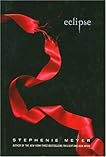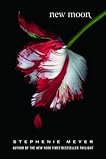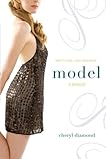Once there was a mouse named Makawee who lived on the open, brown plains with her three sons. Winter was quickly approaching and Makawee was looking for a place to hibernate for the winter.
Makawee’s mother had been a wise mouse and had taught Makawee to look for little tunnels in the ground to live in to keep her warm and safe throughout the winter. But Makawee was very foolish, and was not satisfied with living as her mother and all her other ancestors had before her. She decided to look for a home that was more respectable than a tunnel in the ground.
One day, Makawee was looking for food in the forest with her sons. As she was walking, she spotted a sparrow flying into its nest high in the trees.
“What a wonderful creature!” Makawee exclaimed. “It looks so majestic as it flies high in the sky. If only I were a bird!”
Makawee decided that she wanted to live in the highest branches of a tree, like a bird. “If I live in a tree,” she reasoned, “all the other mice will look up at me with envy because I have such a splendid home.”
Since she could not carry all of her sons into the tree at the same time, she grabbed her oldest son in her teeth and began to climb a tall, leafy tree nearby.
As you and I know, mice were not meant to climb trees, but Makawee’s mind was set on her goal of living like a sparrow, so she managed to clamber up to one of the tree’s highest branches. Makawee set her son down, but the little mouse was not able to balance on the narrow tree branch, and he fell to his death on the hard forest floor.
“My son has fallen! I cannot have the same thing happen to my other sons. I suppose I cannot live in this tree,” Makawee said as she hastily climbed down to the ground.
Not long after, Makawee came to a cool, rushing river. The river was so clean and clear that Makawee could see a fish darting here and there in the water.
“What a wonderful creature!” Makawee exclaimed. “It looks so graceful gliding through the water. If only I were a fish!”
Makawee decided that she wanted to live in the water. “I can make a little house for myself and my sons with mud on the riverbed,” she reasoned. “The other mice will look down into the water and envy my lovely home.”
Makawee picked up her second son and jumped into the river. Of course, mice were not meant to swim in the water, but since Makawee was so determined to be like a fish, she managed to hold her breath as she dove toward the bottom of the river. Her son, however, did not know how to hold his breath, and he drowned.
Makawee returned to the surface of the water. “My son has drowned! I suppose I cannot live in the water if my children will not be able to live there with me,” she said as she stumbled out of the river.
Some time later, a Sioux tribe settled on the prairie where Makawee and her one remaining son were still searching for a place to spend the winter. When Makawee saw the members of the tribe, she was beside herself with jealously.
“What remarkable creatures!” she said. “I wish I were like them! It is so incredible how they walk on two feet and live in teepees and cook their food over fires. I would give anything to be like them!”
Makawee decided to build a teepee like that of the humans. She began to search the vast, open plains for something with which to build her teepee.
After many hours of searching among the scrub bushes and rocks, Makawee found an old snakeskin with which to cover her teepee. She took a few twigs from a scrub bush and stacked them into a conical frame. Then she draped the snakeskin over the twig frame and tied stiff, dry grass here and there to hold the teepee together.
Makawee said to her third son, “Now you and I will live like those humans do. All the other animals will be jealous of us because we have such a marvelous home.”
By this time Makawee had grown hungry, and she decided to go find something for her and her son to eat. She instructed her son to stay in the teepee.
As she was searching nearby for food, she turned to admire the house she had built. Just then, two Sioux children ran toward the little teepee and trampled it beneath their feet. Makawee rushed back to the teepee to find that her son had been crushed.
“All of my sons have been killed!” Makawee wept.
Just as she was saying this, she felt something cold and wet fall on her nose. She gazed up at the sky and saw that it had begun to snow. The snow began to fall faster and faster, until all Makawee could see was white.
“I suppose I won’t be able to find a good home now,” Makawee thought bitterly as she began to trudge through the icy snow in search of a tunnel.
But the snow continued to fall fast and steady, and Makawee could not find a tunnel. She wandered the cold, barren plains the whole winter, wishing she had been content with living as her mother had taught her.
 Killer by Sara Shepard
Killer by Sara Shepard






















